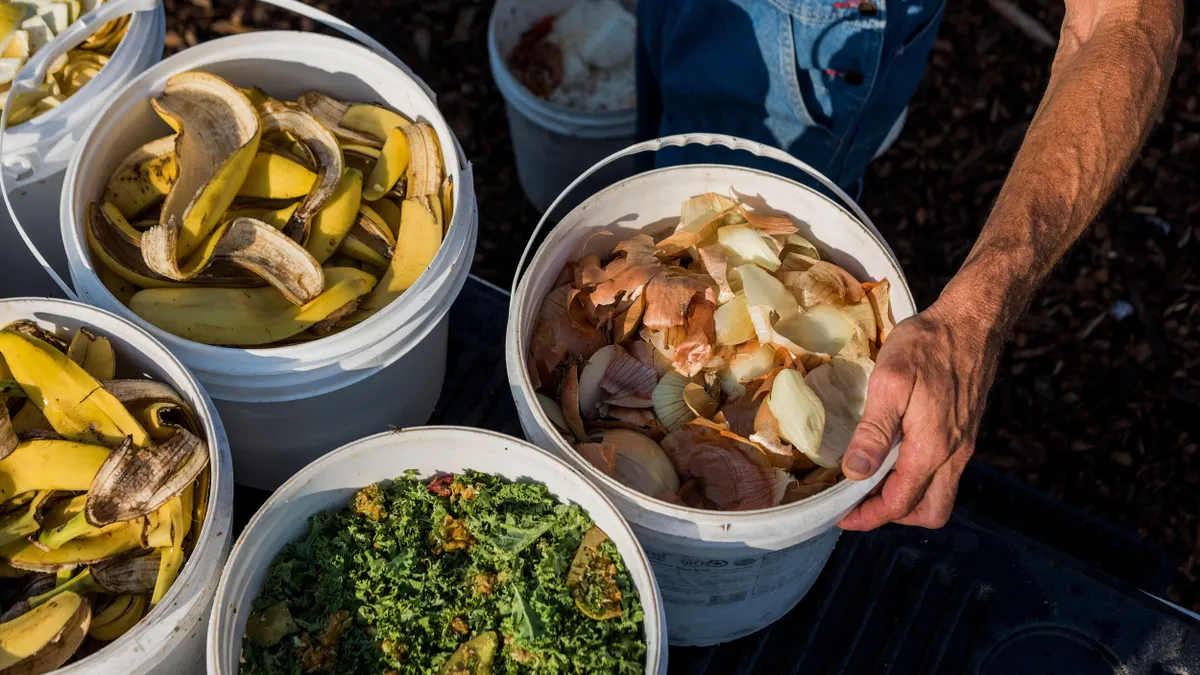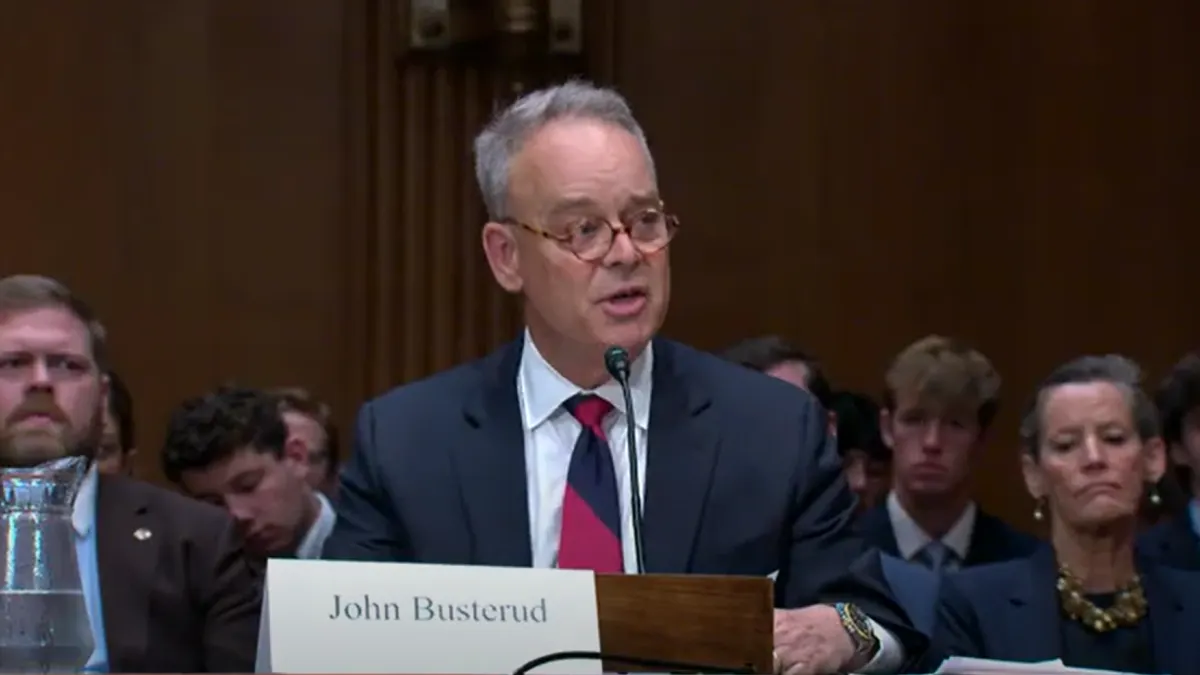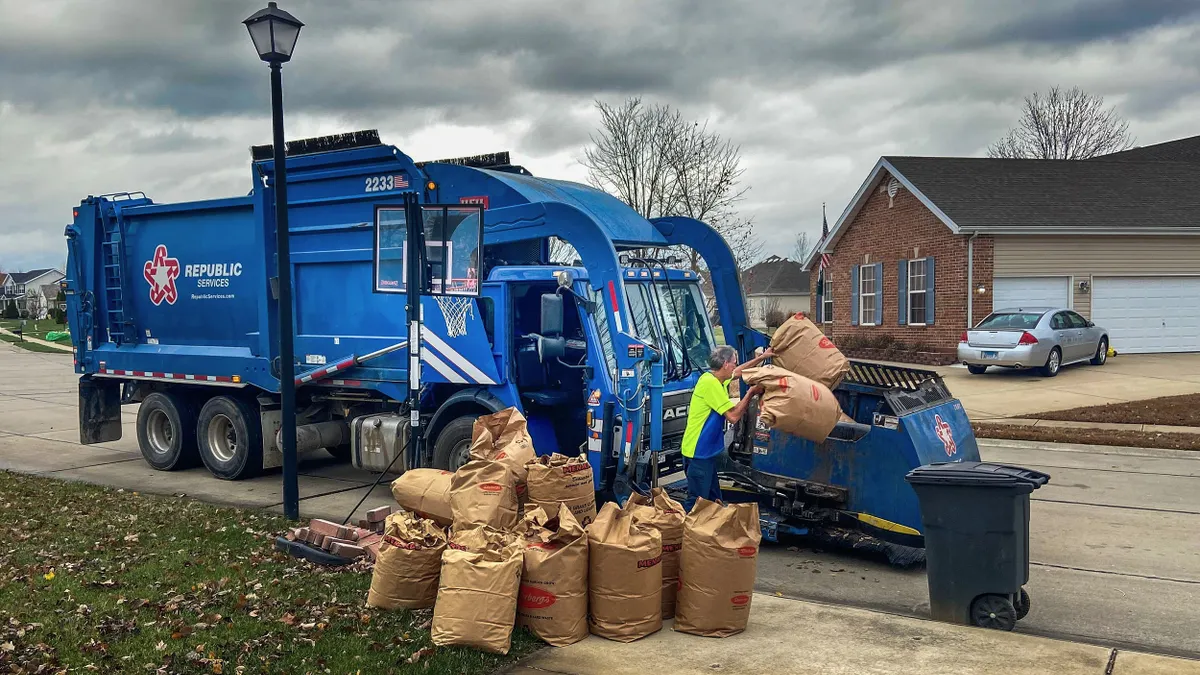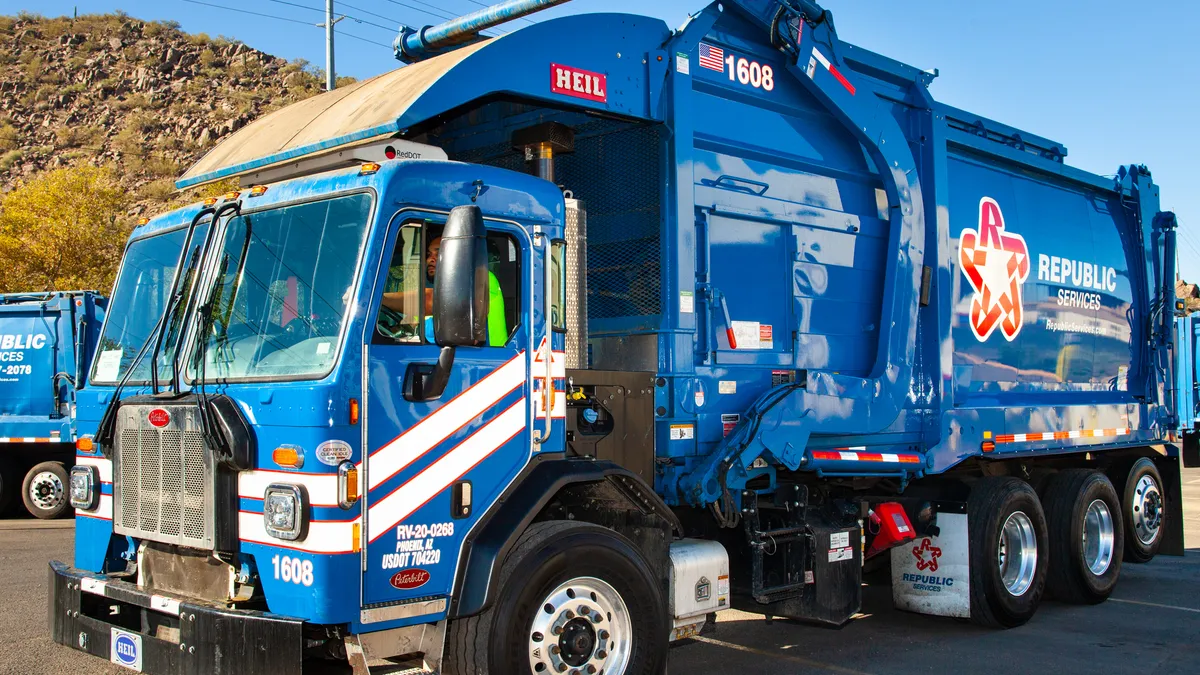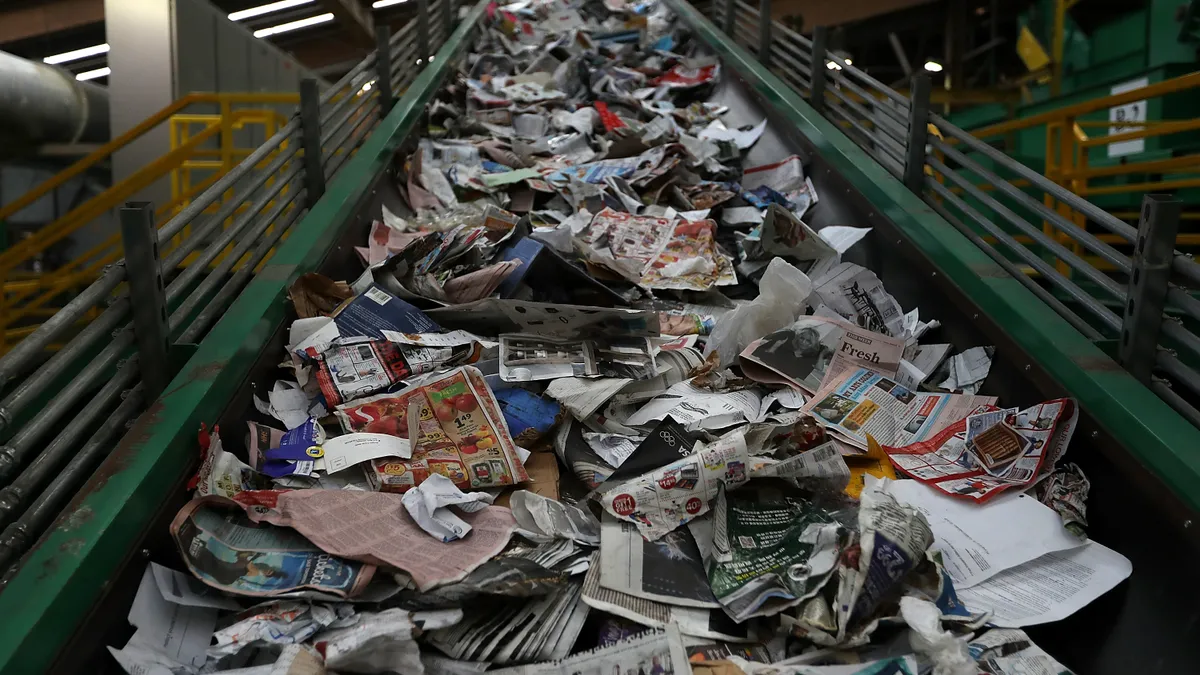While certain areas of North America may be known for their limited disposal capacity, many others frequently see expansions approved as local officials look for ways to manage their waste volumes.
Here’s a look at some of the more notable expansion approvals and developments from the past month.
Arkansas commission allows WM to use Eco-Vista landfill expansion under appeal
The Arkansas Pollution Control and Ecology Commission recently allowed WM to use an expanded area of its Eco-Vista Landfill in Tontitown while its expansion plans are under appeal, the Arkansas Democrat Gazette reported. WM said the landfill’s current footprint had about four weeks of capacity left, and an expansion denial would cause the company to lose “over a million of dollars in revenue per month” and require residents to divert their waste to other disposal options, according to a motion for relief WM filed March 27.
The move allows WM to zone an additional 10 acres of space as suitable for a landfill, in addition to the 417.13 acres it currently uses for disposal. Eco-Vista is also the site of an RNG facility WM opened last summer.
In September, the commission allowed Eco-Vista to begin construction on the landfill expansion and continue to operate under an existing permit. However, it did not allow Eco-Vista to use any of the new capacity, which was authorized under a new Class 1 permit, the motion said.
Tontitown residents, the city’s government and several state lawmakers oppose the expansion, citing air quality and litter concerns and repeated complaints from residents that prompted the Arkansas Department of Environmental Quality to conduct air quality testing in December, news station 5 News Online reported.
The city has appealed to the commission to stop construction, but that appeal came after the state had already granted the permit to start expansion. That appeal is still pending, the Democrat Gazette said.
WM has said the site has undergone environmental monitoring and met all legal requirements for the expansion.
Santa Barbara County, California, extends landfill’s life by more than a decade
The Tajiguas Landfill will live on after the Santa Barbara County Board of Supervisors voted unanimously to approve a 14-acre expansion and 30-foot height increase that will maintain operations through 2038. The site was currently projected to reach capacity by March 2026.
The county’s Public Works Department said in a memo that it was necessary to expand the site by 6.1 million cubic yards, for a total permitted capacity of 29.4 million cubic yards, but that no further expansions would be proposed. The site is filling up in part because a recently opened ReSource Center project has not helped reduce landfill volumes as much as expected.
The project — which includes a combination of mixed waste MRF processing, composting and anaerobic digestion — was designed in an effort to comply with SB 1383. It has been in “limited service” since the fall of 2021 and has yet to reach full operating capacity. The county terminated a contract with developer and operator MSB Ventures, an affiliate of Mustang Renewable Power Ventures, in December.
The Santa Barbara Independent and Santa Maria Times reported that local residents and environmental groups raised concerns about potential pollution and odor issues from the expansion.
County staff said odor issues are related to the ReSource Center, not the landfill. They also said the alternative of exporting waste to the Chiquita Canyon Landfill or Santa Maria Regional Landfill could also have environmental effects. The annual cost to export waste to one or both sites was estimated to be more than $13 million, versus an annual cost of $1.6 million to expand Tajiguas. The total estimated cost for the expansion is $20 million.
Waste Connections withdraws appeal on California landfill expansion permit denial
Waste Connections withdrew its appeal on March 21 after the San Benito County Planning Commission decided not to approve an environmental impact report and a related conditional use permit necessary to expand the John Smith Road Landfill.
Waste Connections subsidiary Waste Solutions has operated the county-owned landfill since 2005. It had originally proposed expanding the 95-acre landfill to 483 acres, according to the environmental impact report. The expansion would have increased the waste footprint from 58 acres to 252.74 acres and raised the waste tonnage limit from 1,000 tons per day to up to 2,300 tons per day, allowing the landfill to operate until 2087.
The Planning Commission declined to certify the report in February, saying the financial benefits couldn’t outweigh the impacts the expansion would have on the environment and air quality, BenitoLink reported. Waste Connections originally appealed the decision, which the San Benito County Board of Supervisors had planned to consider last week.
Waste Connections did not state a reason for its decision to rescind the appeal letter, the publication reported. Curt Fujii, regional engineer with Waste Connections, told BenitoLink it was a business decision. The company previously said the site became less feasible when it had to stop taking out-of-county waste. The company will continue to meet contractual obligations to operate the landfill until it closes, he said. The landfill has about 13 years of capacity remaining.
The expansion plans faced pushback from some residents, who said the project could create more air, noise and water pollution. Others criticized the plan for potentially allowing Waste Connections to bring in more waste from outside the county. In the EIR, Waste Connections said it stopped accepting waste from outside the county in March 2022.
Oswego County, New York, approves landfill expansion as existing capacity quickly fills
Oswego County, New York, is moving ahead with a more than $6 million plan to expand its landfill. The county legislature approved a resolution to add a new cell to the Bristol Hill Landfill on March 14.
Currently, the landfill has two closed cells and two active cells. The active cells are filling up faster than expected, The Palladium-Times reported last month. A survey of the open cells found the landfill's third cell is nearly full and its fourth cell has about two and a half years of capacity left, Michael Lutestanski, director of the county’s solid waste programs, told the paper.
The landfill accepts a mix of waste, including C&D debris, mixed MSW, sewage treatment sludge and ash from the county's Energy Recovery Facility. The facility used more than 74,000 cubic yards of airspace in 2022, the most recent year for which data is available. It reported about 353,000 cubic yards of remaining airspace that year.
At the time of this last report, officials reported a little under five years of remaining permitted capacity, assuming similar disposal trends. But the volume of waste entering the landfill has increased in recent years as the county's WTE facility struggles with increased downtime, Lutestanski told county legislators in a memo.
The landfill has permitted acreage remaining for an expansion. The county’s solid waste department is pushing to begin construction on a new cell soon and have it ready to accept trash by the end of this year.
Pickens County, South Carolina, to expand public landfill
The Pickens County Council voted in favor of plans to expand the county's C&D landfill, adding 25 to 30 years of new capacity to the site. The county has struggled to identify landfill capacity while disposal volume has more than tripled in recent years, 7News reported.
The expansion adds nearly 69 acres. The county previously contracted with MRR Upstate Recycling and Transfer to build a new landfill to replace the old and quickly filling C&D landfill. But by 2015, county legislators got word of MRR plans to dump coal ash at the site.
The legislators' objection to coal ash dumping led to a six-year legal battle that ended in 2022 with a settlement. Under the terms of the agreement, Pickens County loaned MRR $3 million to finish its landfill construction with the understanding that the company would sell the landfill upon completion, according to Greenville News. The county also was required to buy a portion of the land owned by MRR for $3.5 million.
The county's director of solid waste said the new landfill plans will save the county money. He said his department is working to cut disposal costs from almost $69 per ton to less than $10 per ton, per 7News.
The expansion will need to undergo a roughly 18-month permitting process.







